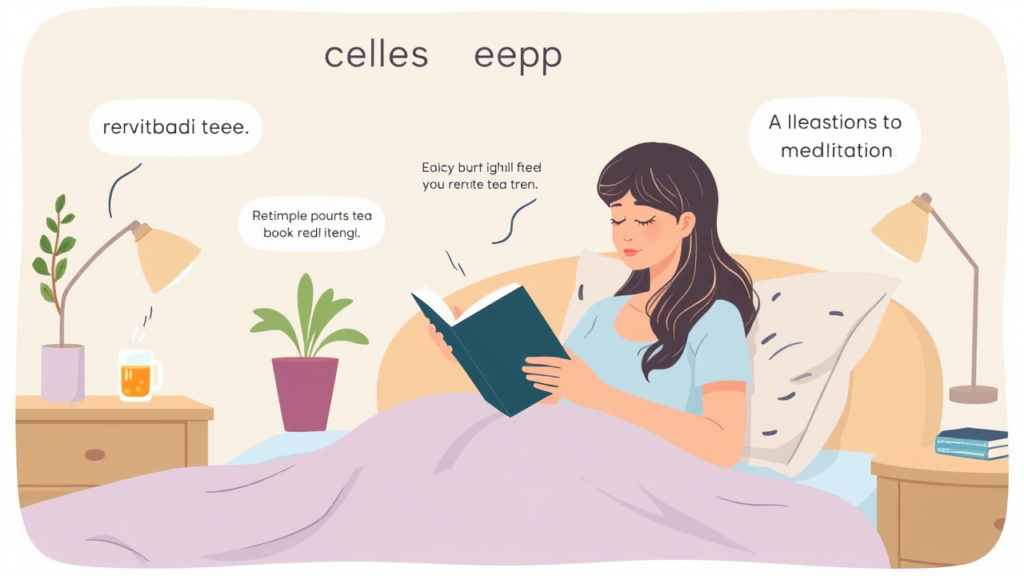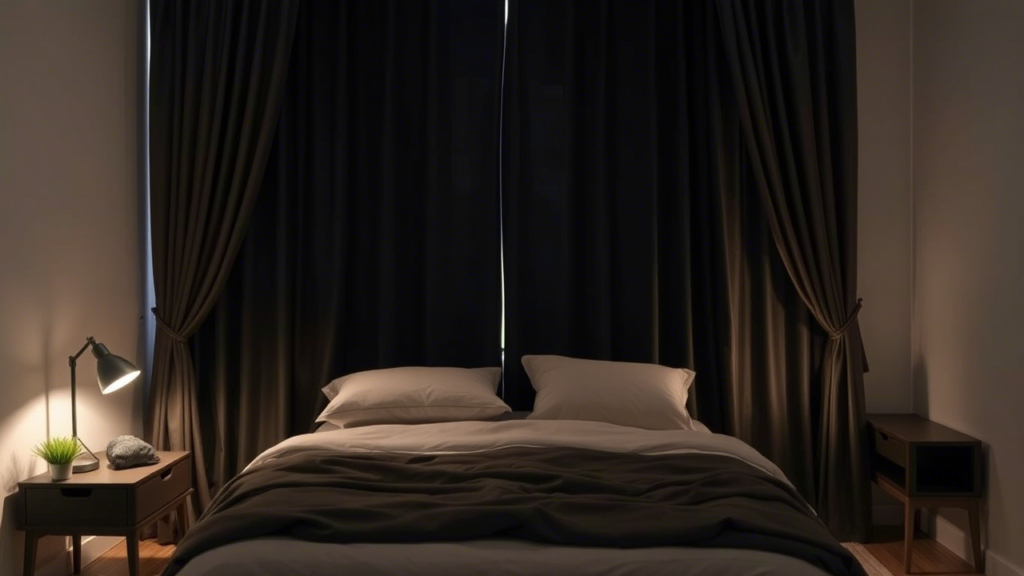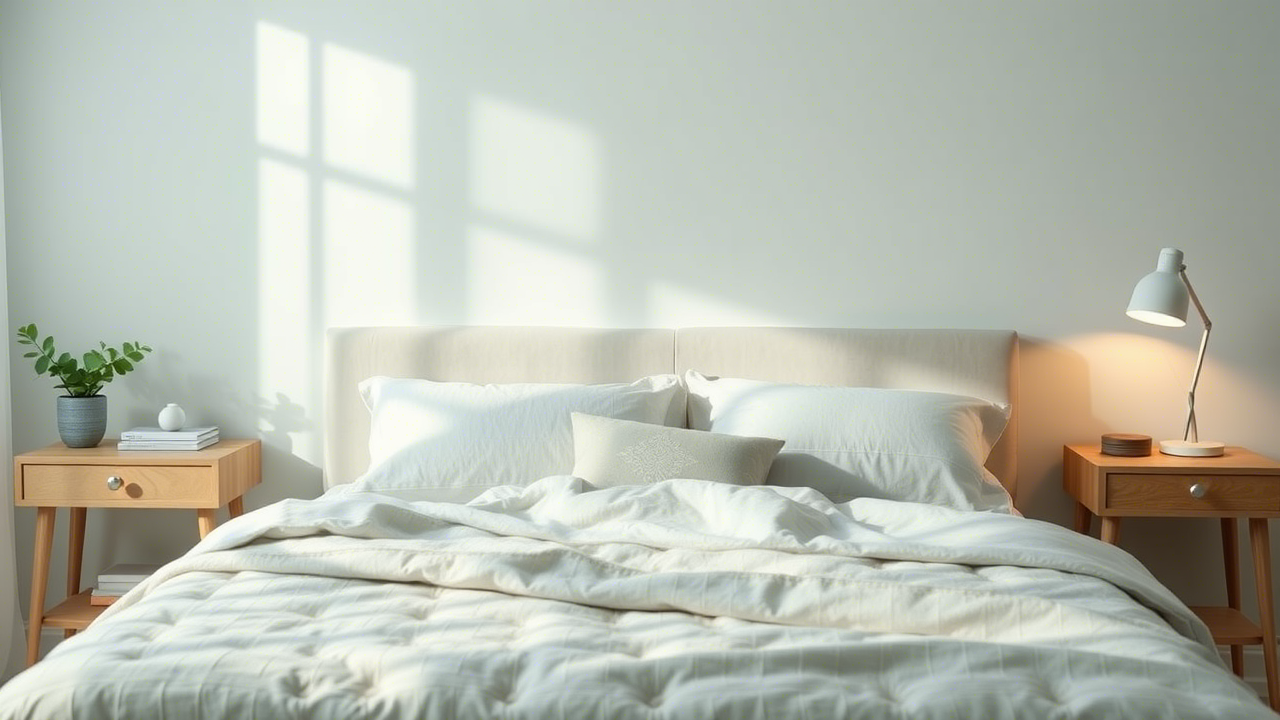How to Improve Sleep Quality: A Complete Guide to Sleeping Well
Sleep quality is one of the fundamental pillars of a healthy life. However, many people struggle to sleep well, which can negatively impact their physical and mental health. In this complete guide, you will learn how to improve sleep quality with practical and scientifically proven strategies.
Why Quality Sleep Is Essential for Your Health?
Sleeping well goes beyond simply resting. During sleep, the body performs essential processes, such as cellular regeneration and memory consolidation. Sleep deprivation, on the other hand, can cause a series of serious problems.
How Sleep Impacts the Body and Mind
Sleep directly affects brain function. When we don’t get enough sleep, our ability to concentrate and make decisions decreases. Additionally, the immune system becomes weakened, increasing the risk of diseases. Studies show that people with inadequate sleep are more likely to develop conditions like obesity, diabetes, and depression.
Consequences of Sleep Deprivation
Prolonged lack of sleep can lead to physical and mental exhaustion. Individuals who suffer from insomnia often report irritability, difficulty memorizing, and even cardiovascular problems. Therefore, investing in a good night’s sleep is investing in long-term health.
Healthy Habits to Sleep Better

Create an Effective Nighttime Routine
Establishing a consistent routine helps the body recognize when it’s time to sleep. Try going to bed and waking up at the same time every day, even on weekends. This regulates the biological clock, making it easier to fall asleep.
Foods That Help or Harm Sleep
Diet also plays an important role. Avoid consuming caffeine or heavy meals before bedtime. On the other hand, foods rich in tryptophan, such as bananas and nuts, can help induce sleep.
How to Create the Ideal Environment for Restorative Sleep?

Lighting, Temperature, and Bedroom Organization
Lighting is one of the most important factors. During the night, the body produces melatonin, the hormone responsible for inducing sleep. Bright lights, especially blue light emitted by electronic devices, can inhibit this production. Use blackout curtains or eye masks to block unwanted light sources. Additionally, keep the bedroom at a comfortable temperature, ideally between 18°C and 22°C. An organized environment also contributes to a sense of tranquility and relaxation.
Technology and Sleep Interferences
Electronic devices, such as cell phones, tablets, and televisions, are major enemies of modern sleep. Exposure to blue light from these devices directly interferes with the circadian rhythm. To improve sleep quality, establish a simple rule: avoid using electronic devices at least one hour before sleeping. If necessary, use apps that reduce blue light emission.
Practical Techniques to Combat Insomnia
Relaxation Exercises
Practicing relaxation exercises before sleeping can help calm the mind and body. Techniques such as light stretching, warm compresses on the eyes, or even a relaxing bath are excellent options. These practices reduce stress and prepare the body for a peaceful sleep.
Breathing and Meditation Techniques
Diaphragmatic breathing, also known as abdominal breathing, is a powerful technique to induce sleep. Breathe deeply through your nose, expanding your abdomen, and exhale slowly through your mouth. Repeating this cycle for a few minutes helps lower your heart rate and promotes relaxation. Guided meditation, available in apps or online videos, can also be a valuable ally.
Impact of Sleep on Physical and Mental Health
Relationship with the Immune System
During sleep, the body actively works to strengthen the immune system. Studies show that people who sleep less than six hours a night are more susceptible to infections, such as colds and flu. Additionally, chronic sleep deprivation can compromise the immune response to vaccines, reducing their effectiveness. To improve sleep quality and protect your health, invest in habits that promote deep and restorative rest.
Connection Between Sleep and Emotional Well-Being
Lack of sleep also directly affects emotional well-being. Sleep-deprived individuals tend to exhibit greater irritability, anxiety, and difficulty managing stress. This occurs because sleep regulates hormone levels such as cortisol and serotonin, which are responsible for emotional balance. Sleeping well, on the other hand, improves mood, increases resilience, and contributes to a more positive outlook on life.
Common Mistakes That Harm Sleep
Using Cell Phones Before Bed
Using cell phones before bed is one of the biggest enemies of modern sleep. In addition to the blue light mentioned earlier, the content consumed—such as social media or news—can stimulate the brain and make relaxation difficult. To improve sleep quality, create the habit of leaving your phone outside the bedroom or on airplane mode during the night.
Excessive Caffeine Consumption
Caffeine is a stimulant that can remain in the body for up to six hours after consumption. Drinking coffee, black tea, or sodas in the afternoon or evening can interfere with falling asleep. If you want to improve sleep quality, limit caffeine intake to the morning and opt for relaxing drinks, such as chamomile or lemon balm tea, later in the day.
Final Tips to Improve Sleep Quality
Regular Physical Activity
Regular exercise significantly contributes to improving sleep quality. Activities such as walking, yoga, or swimming help reduce stress and promote an ideal state of relaxation for sleeping. However, avoid intense workouts close to bedtime, as they may have the opposite effect, leaving the body overly stimulated.
Set Limits for Worries
Many people struggle to sleep due to excessive worries. An effective technique is to set aside a specific time during the day to reflect on these issues. Writing in a journal before bed can also help release negative thoughts and allow the mind to rest.
Monitoring Your Sleep Progress
To continuously improve sleep quality, it’s important to monitor your progress. Sleep tracking apps or wearable devices can provide valuable insights into sleep patterns, duration, and efficiency. Based on this information, you can adjust your routine and identify areas that need improvement.
When to Seek Professional Help
If, even after implementing all these strategies, sleep remains unsatisfactory, it may be necessary to seek professional help. Disorders such as sleep apnea or chronic insomnia require specialized diagnosis and treatment. Consult a doctor or sleep specialist for personalized guidance.
Conclusion
Improving sleep quality is not just a matter of comfort but a fundamental necessity for a healthy and productive life. By adopting healthy habits, creating an adequate environment, and avoiding common mistakes, you can transform your nights and, consequently, your days. Remember: small changes can generate big results when it comes to how to improve sleep quality.
Internal and External Links
Internal Links:
- Want to discover how to improve your health naturally? Check out our article on The Best Teas to Lower Blood Sugar.
- Learn how to monitor your health at home with our practical guide: How to Measure Blood Pressure at Home.
External Link:


No responses yet